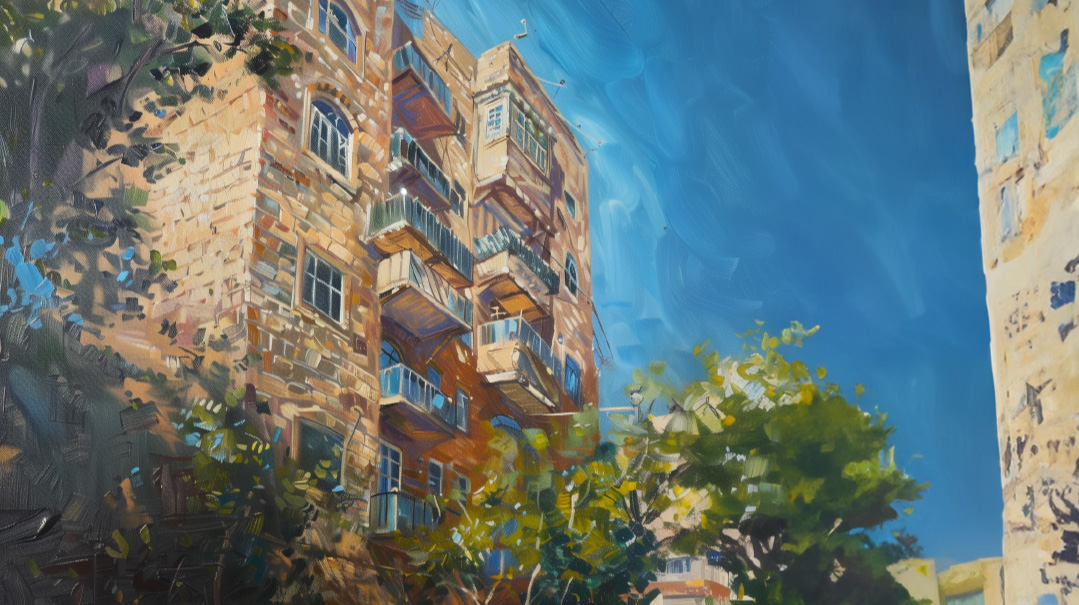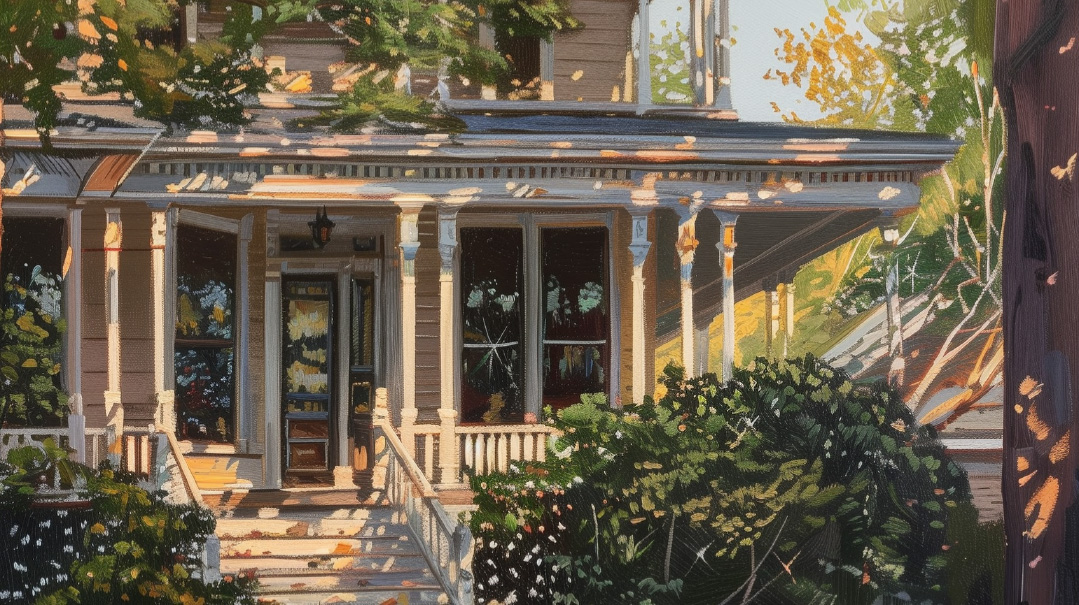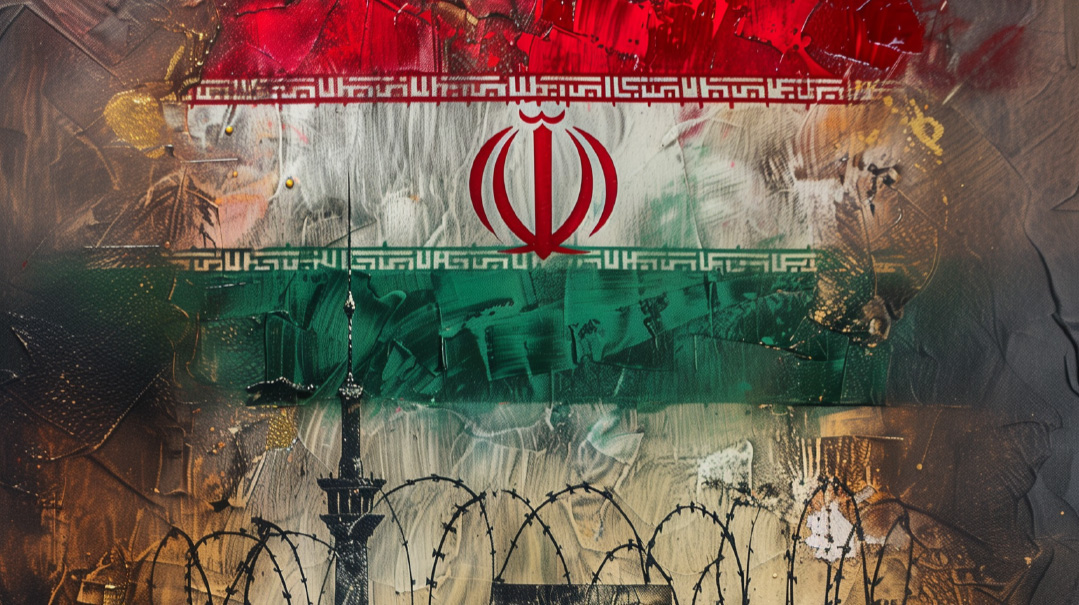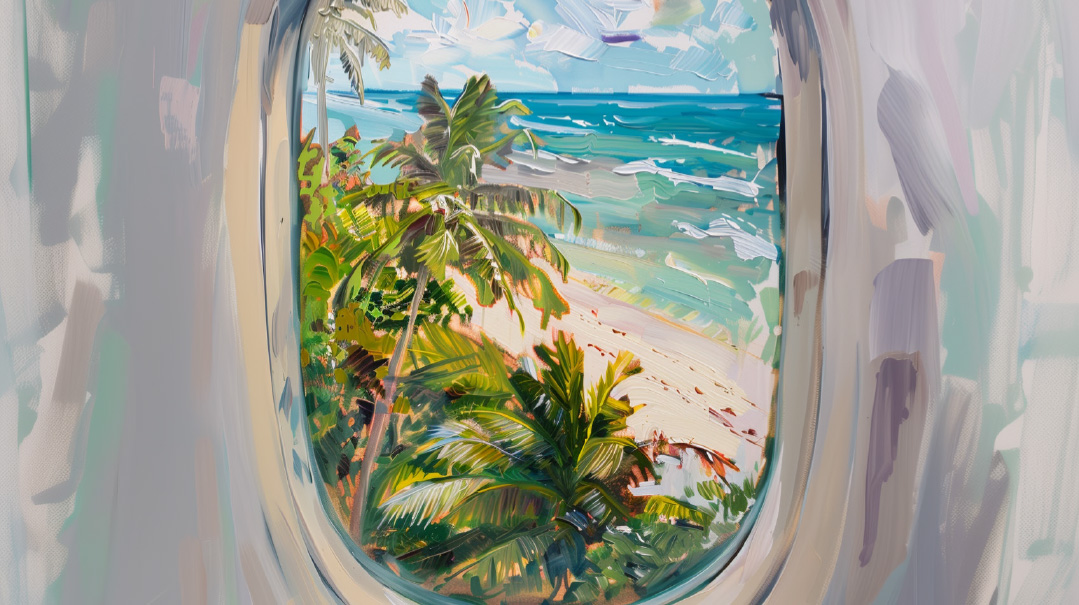Finally, Home
| April 16, 2024“What about your second Pesach Seder? I usually have American bochurim. Come to me”

As told to Shoshana Gross by Yitzchak Rowner
MY friend Dovid explodes into the room with the force of an Israeli tender driver chasing a tenth fare, throwing himself on the sagging couch in the corner of our dirah and mopping his crimson face.
“Figured out your matzav?” Ezra Rubin asks, tossing clothing into a dusty suitcase.
“Not yet. My mother’s working on tickets. I told her about that great deal on United — the one Markowitz was klehring about after first seder, but…” an eloquent shrug. He looks at me. “What about you, Yitzchak?”
“I have an aunt and uncle in Bnei Brak. I really want to go home, but with the crazy Covid regulations, who knows if I’ll be back in time for the next zeman? I figure it’s better to stay here for Pesach if I can,” I say.
“There’s no way my parents would let me stay, and I don’t have any relatives here, so it wouldn’t be geshmak,” Ezra remarks.
“What about your second Pesach Seder, Yitzchak?” Dovid wants to know.
“Maybe I could make one alone at my aunt and uncle’s house. I’m not sure where else to go. I’m also wondering about finding an American minyan for the second day of Yom Tov. I’ve heard it’s shver to find a minyan in Bnei Brak, and most of the oilem is going back to the States because of Covid. Nobody wants to spend Yom Tov with strangers. Makes sense. It’s going to be lonely here.”
I try not to sound as nervous as I feel.
“Listen!” Ezra exclaims. “I was in Bnei Brak a few months ago. There’s this guy, Leider, who takes bochurim around to the gedolim. He can literally skip the line at R’ Chaim! He also hosts tons of bochurim every Shabbos. It’s a real matzav. Anyway, Leider knows everything about Bnei Brak. Why don’t you give him a call? Maybe he can tell you about some places to chap an American minyan.”
I save the number into my phone, step onto the mirpesset overlooking Minchas Yitzchak, avoiding the steady drip of sponja water trickling down from the neighbor’s porch, and dial the number.
“Hello? Ver iz dos?” The voice is deep and rich, and I breathe a sigh of relief at the Yiddish, which I can manage. Even after all these months, my Hebrew isn’t that great.
“My name is Yitzchak Rowner. I’m an American bochur,” I begin. “I’m coming to Bnei Brak for Pesach. Where can I find an American minyan for the second day?”
Rabbi Leider has a few ideas, and then he says, “What about your second Pesach Seder? I usually have American bochurim. Come to me.”
I’m startled, but picturing myself sitting alone at my aunt’s house, I consider his offer.
“How many bochurim are you having?”
“I never know. It can be five, maybe ten. Some show up at the last minute.”
It’s not exactly a promise, but I suddenly find myself saying, “Yes, I’ll come. Thank you.”
And with an effusive “Chag kosher v’samei’ach,” my second Pesach Seder is taken care of.
I’M twisting and turning, Fenster’s snores echoing deafeningly.
Giving up on sleep, I think about my family preparing for Pesach. The house overflowing with nieces and nephews… the smell of my mother’s Pesachdig chocolate chip bars… piles of boxes from under the stairs that I usually schlep to the kitchen… vacuuming the car in the warm sunshine… the sweetness of learning with my father… Did I make the right decision? I feel like I’m the only bochur not going home.
My mind wanders back half a year ago, when I left the crowded Ben Gurion Airport for the first time. I had a feeling of connection to the Land — but there was a lot to get used to. The rapid-fire Hebrew made my head spin, the breakfast cereal looked strange, and milk came in bags! I gawked at white stone buildings and Arab construction workers smoking hookahs on every corner. Stepping into the beis medrash was the first time I didn’t feel lost, and even there, my chavrusa was new. Plumbing the words of a shvere sugya, I felt relief that the words of the Tosafos were still the same.
And now, with the long winter past, and spring unfurling in every nook and cranny of Yerushalayim? It can still, sometimes, feel strange.
At least with the other American bochurim at Leider’s, we can all be strange together. I remember Succos; there’s nothing like trying to celebrate Yom Tov when everyone around you acts like it’s a regular day. There’s a sense of unreality, further distorted by the fact that they also celebrate Yom Tov, just not at the same time. Not something I’m looking forward to.
The burly chassid dumping an entire store’s worth of pita into the fire doesn’t seem to notice that the flames are spreading past the rusty edge of the metal container. Smoke drifts through the kikar next to Ponevezh, stinging my eyes.
“Aish!” yells an intrepid “fireman,” who seems to be no more than seven. He darts forward to stoke the fire, sending up a shower of sparks, which the passersby ignore. A wizened old man tosses a few crusts past the boy’s head, while a kollel yungerman with thick, blond peyos pulls out a bag of what looks like cereal. The little boy prods the flames again, face intent.
Leaving the bi’ur chometz crowd, I head to Rechov Bar Yochai, where my Tante Dasi’s oldest daughter lives. I’ll be sleeping there over Pesach, and while I appreciate my own room, I’m startled to realize I also feel lonely. Even Fenster’s snores seem appealing.
I decide to give Leider another call to make sure the American Seder is still on.
“Vos macht ihr?”
It’s a son. Yes, for sure, the Seder is happening. How many people? They still don’t know. It’s the Israeli form of laissez-faire, and I decide to relax. I have a Seder. I won’t be alone.
Finding a needle in a haystack is child’s play compared to finding ten Americans to daven a second-day Yom Tov Maariv in Bnei Brak. Leider might know everything, but the first place he recommended yields only four fellow searchers. After staring awkwardly at each other for way too long, we band forces and locate another place to daven.
By the time I begin my 15-minute walk through the darkened streets, buses are rumbling past and cars are swinging into the intersections. I catch a whiff of cigarette smoke from a nearby building, and the notes of someone strumming a guitar drift past.
I’m gasping as I climb the three flights of stairs and knock. The door flies open exuberantly, and a tall, heavyset man with a long, graying beard is smiling.
“Come in, come in,” Rabbi Leider cries, taking my arm and ushering me inside. “We’ve been expecting you!”
“I’m sorry I’m late,” I tell him.
And then I glimpse the Seder table, spread with a dazzling white cloth. Fine china gleams, silver wine goblets glisten, and Haggados flank a majestic ke’arah and numerous bottles of wine. The only thing missing? Guests.
“Is it just me?” I’m late. If people were coming, they would be here already, right? I’m strangely cold. Or hot? A red flush rises, and my mouth is dry.
“I don’t know. Usually we have at least five, but maybe not this year,” Rabbi Leider answers. “But we’re so glad you came!” He leads me to the table, warm and welcoming, and then scurries around the apartment, calling his family.
Two older bochurim, an assortment of young girls, and some mischievous-looking little boys emerge. A gracious, smiling woman, who can only be Rebbetzin Leider, beams at me. All of them, all of these people who don’t know who I am, arrange themselves around the table expectantly.
“Thank you for bringing the kedushah of the Seder to our house a second time,” Rabbi Leider tells me sincerely, and I realize, with a jolt of astonishment, that this entire Israeli family who just made Havdalah, is going to have a second Seder with the lone American bochur who showed up.
He fills my cup with the wine, and everyone stands as I begin to sing the steps of the Seder, accompanied by the boys.
Rabbi Leider brings me water to wash my hands, and we all dip our potatoes in small bowls of salt water. I break the matzah and stash the afikomen behind my pillow. We’re not far into Ha Lachma Anya, when I hear a strangled giggle as one of the little boys decides to steal the silk-wrapped matzah.
I recite Mah Nishtanah to my host, amid great hilarity, and then a few of the children repeat it for good measure. The age-old story of Yetzias Mitzrayim comes to life as we turn the pages of our Haggados.
“Usually, I’m so busy with the children,” Rabbi Leider confides. “Now I have more time to say chiddushim, all because of you!”
Maybe it’s the second cup of wine, stronger than I’m used to, but during Shulchan Oreich I find myself talking and laughing effortlessly over the clear soup and chicken. The Leiders wash and join in for a belated, post-midnight Melaveh Malkah. The third cup of wine induces a pleasant haze, through which I see the youngest boy dangling my afikomen tantalizingly out of reach.
“I want to go horseback riding for Chol Hamoed,” he informs me, apparently believing that Americans can do anything. Amid the laughter, I savor the afikomen and the lingering sweetness of the meal.
All the Leiders have exquisite voices, and the songs of Hallel and Nirtzah fill the room, spilling out the open windows, flowing through the streets of Bnei Brak.
“I want to sing my grandfather’s Chad Gadya,” I declare. It’s probably the fourth cup of wine talking, but when I treat the Leiders to my Sephardi grandfather’s Arabic version of Chad Gadya, it brings the house down. The boys are still chortling as the whole family escorts me to the door.
“Gut Yom Tov, Chad Gadya,” the horse-lover calls.
“Thank you. For the delicious food and everything.” There’s so much more I want to say, but I don’t know how.
“What a zechus, to have a second Seder,” says Rabbi Leider. “Thank you.”
Bnei Brak is finally quiet. The scents of spring are lush, and the full moon washes the world in silver. All I can see is that beautiful Seder. All I can hear are those sweet niggunim, carrying me through the streets, back to where I’m staying.…
“You went to Leider’s for the second Seder?”
It’s a few weeks later, and we’re finishing a Melaveh Malkah of our dirah’s culinary specialty — deep-fried schnitzel and fries (Ezra supplies the deep fryer, the makolet down the block supplies everything else) — when Dovid returns from Bnei Brak.
“I told the chevreh about it after bein hazmanim,” I answer. “Don’t you remember?”
“Just making sure.” There’s a gleam in Dovid’s eye. “There’s another part to the story you don’t know.”
“What do you mean?”
“I went to Leider’s for the Shabbos day seudah,” Dovid begins. “Rabbi Leider was telling us about having one American for the second Seder. I told him I’m in your dirah. By the way, the kids were laughing and saying something about Chad Gadya. What’s that all about?”
“Nothing,” I say quickly.
“Rabbi Leider said he took some bochurim to Rav Chaim Kanievsky not long after Pesach. He told the story to Rav Chaim, about how he and his family had a second Seder with one lonely American boy, and Rav Chaim looked at him, and said, ‘I’m mekaneh you.’” Dovid shakes his head in wonder. “Can you imagine?”
I can.
I’m back amid the moon-washed night, surrounded by the love of another Jewish family, filled with the exquisite joy of belonging.
No longer a stranger.
Finally, home.
(Originally featured in Family First, Issue 890)
Oops! We could not locate your form.




